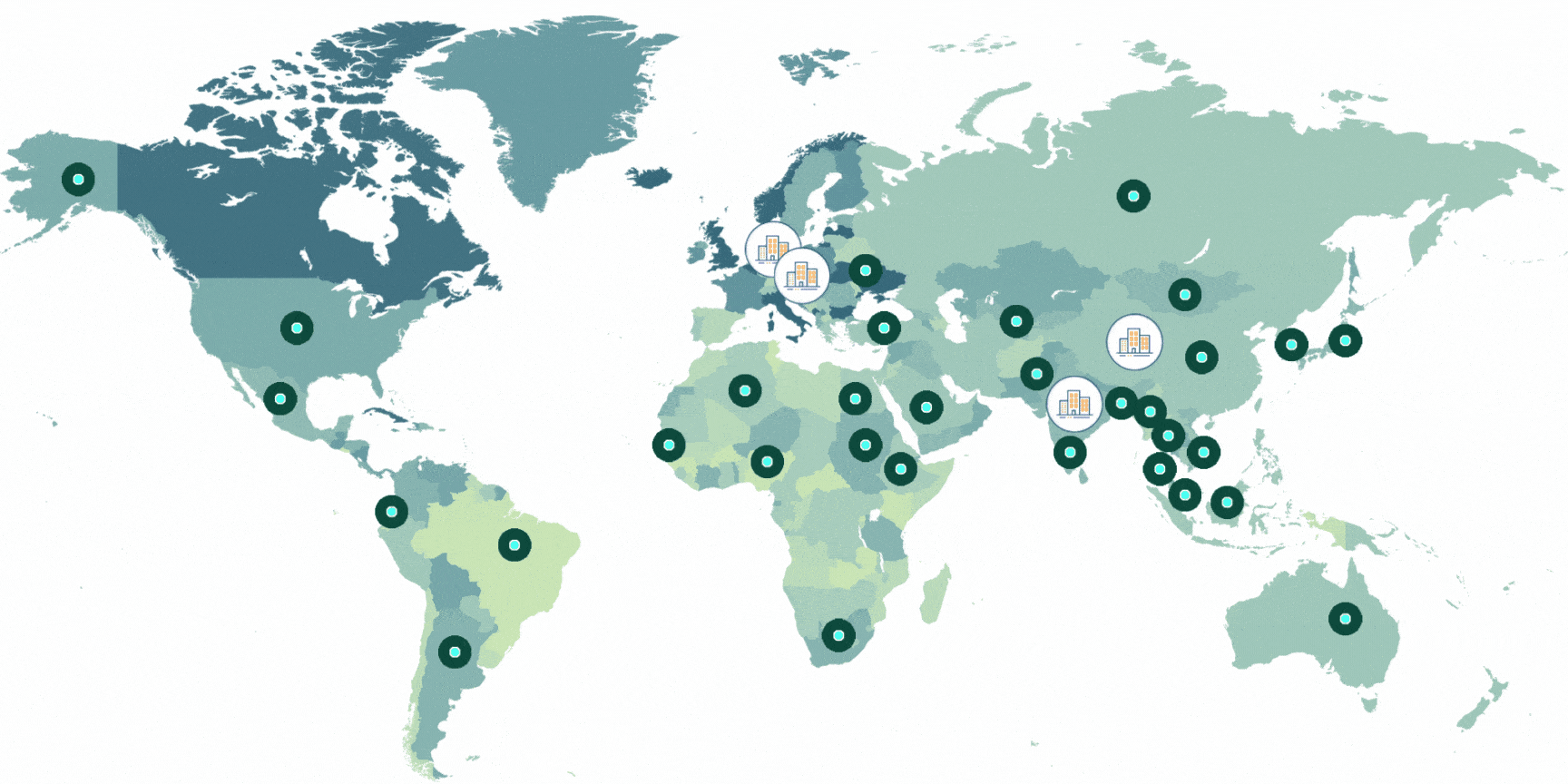Strategy #1: Adopting Lean Manufacturing Principles
Implementing lean manufacturing principles is a strategic method that aims to optimize value for the customer and reduce waste. Wet wipes manufacture requires a thorough examination of the production process to identify and remove any phases, methods, or materials that do not contribute value. Lean concepts promote ongoing enhancement and optimization of efficiency, quality, and speed. Wet wipes manufacturers may maintain a strong market presence and client loyalty by continuously monitoring and consistently changing production procedures to meet and beyond consumer expectations.
One crucial element of lean manufacturing is minimizing waste, which encompasses physical waste materials, excessive energy consumption, and inefficient labor methods. Wet wipes manufacturers should enhance demand forecasting to match production levels with market demands better, reducing overproduction. They could also implement energy-efficient equipment or restructure processes to minimize inefficiencies and idle time for employees. The objective is to establish a more efficient production line that ensures high-quality output while reducing unnecessary expenses.
Another vital element of lean manufacturing is the notion of continual improvement, commonly known as Kaizen. This includes both the initial modifications made to enhance production efficiency and a continuous endeavor to enhance procedures. Consistent feedback from individuals who run machinery and manage daily manufacturing tasks is crucial. They can offer insights into possible issues or propose enhancements that may not be apparent from a managerial viewpoint. This collaborative approach guarantees the production process remains adaptable and sensitive to internal and external changes, hence sustaining efficiency and profitability in the long run.
Strategy #2: Implement Smart Manufacturing Technologies
Implementing smart manufacturing technologies in the wet wipes business requires integrating modern systems like the Internet of Things (IoT), artificial intelligence (AI), and machine learning into the wet wipes manufacturing process. These technologies help wet wipes manufacturers reach higher levels of automation and precision, which are vital for boosting efficiency and decreasing costs. By combining sensors and data analytics, machines can autonomously change processes in real time to maximize production speed and product quality. This not only decreases human mistakes but also ensures that resources are employed more effectively, leading to significant cost savings and greater output consistency.
One of the prominent benefits of smart manufacturing is predictive maintenance, which may drastically minimize downtime. Sensors within the machinery monitor performance and forecast when maintenance or repairs are needed before problems occur. This proactive strategy means that production is seldom stopped and can greatly extend the lifespan of the equipment. Additionally, AI can evaluate production data to uncover trends and insights that human operators would overlook, making recommendations to enhance the manufacturing process further. For instance, AI algorithms might recommend alterations in moisture levels or cutting rates to enhance the quality of the wet wipes, suited to individual consumer expectations.
Moreover, smart manufacturing technologies can support better decision-making through enhanced data visibility and accessibility. Managers and decision-makers can access real-time production data via cloud-based platforms from anywhere, enabling better informed and prompt decisions. This level of connection not only improves the management process but also enhances collaboration across many departments, from production to supply chain management. Overall, deploying these intelligent solutions empowers wet wipes makers to adjust more promptly to market changes, optimize inventory management, and maintain a competitive edge in an increasingly tech-driven business.
Strategy #3: Diversify Your Product Offerings
Expanding product offerings in the wet wipes sector entails broadening the variety of items to meet the needs of various market segments and consumers. Wet wipes manufacturers can expand their product range by introducing items such as cosmetic wipes, disinfecting wipes, pet wipes, and eco-friendly biodegradable wipes, in addition to classic products like baby wipes. Each sector has distinct growth opportunities and has the potential to appeal to a wide range of customers. As people become more ecologically aware, the demand for sustainable products rises. Wet wipes manufacturers may attract eco-conscious consumers and improve their brand reputation by selling biodegradable and compostable wipes.
Diversifying product offers helps wet wipes manufacturers reduce risks by decreasing reliance on a single product type, in addition to expanding their market. When demand for a product decreases because of market saturation or changing consumer tastes, having other items available can help maintain revenue and support business expansion. During flu seasons or pandemics, there may be a surge in demand for disinfectant and antibacterial wipes, which could offset any potential decreases in other categories. Introducing premium brands of cosmetic wipes might target a more affluent consumer, resulting in increased profit margins compared to regular wipes.
Wet wipes manufacturers must invest in adaptable production equipment to effectively diversify product offers, enabling seamless transitions between various materials and formulations. Flexibility is essential for effectively controlling production expenses and quickly adapting to market trends. It is crucial to comprehend consumer trends and preferences through market research to guarantee the successful reception of new items. Cooperating with marketing teams to efficiently advertise these new product lines will be crucial for their success. Wet wipes manufacturers can expand their product range and increase their market influence by integrating strategic market information and consumer input into their product development process.
Strategy #4: Optimize Inventory Management
Efficient inventory management is essential for wet wipes manufacturers to maintain a balance between meeting market demand and reducing expenses related to excess or insufficient stock. Effective inventory management ensures optimal levels of raw materials and finished products are on hand as required, without unnecessarily immobilizing funds in surplus stock. Advanced inventory management systems utilize real-time data to monitor stock levels, forecast future demand using historical sales data, and automate reordering procedures. These technologies assist wet wipes manufacturers in eliminating production delays caused by material shortages and in cutting storage costs by avoiding surplus inventory.
Utilizing just-in-time (JIT) inventory techniques is a beneficial approach to efficient inventory management. Just-In-Time (JIT) entails ordering and receiving items just when necessary in the production process, leading to decreased inventory costs and improved efficiency in storage and handling. This method necessitates meticulous synchronization with suppliers and exact demand prediction to guarantee that resources arrive right before they are needed, reducing the time goods are kept in storage. Manufacturers can optimize warehouse space and minimize waste by decreasing the inventory footprint, a crucial practice in businesses with perishable products such as wet wipes.
Furthermore, incorporating cutting-edge technology like IoT and AI might improve inventory management even more. Sensors can track stock levels and environmental conditions, while AI systems may assess consumption patterns and modify inventory parameters instantly. These technologies enable wet wipes manufacturers to adopt a more flexible and adaptable approach to inventory management, swiftly adjusting to any fluctuations in production requirements or consumer demand. Investing in these technologies and methods can help wet wipes manufacturers create a more efficient inventory system, leading to a streamlined production process and increased profitability.
Strategy #5: Enhance Operational Agility
Improving operational agility in wet wipes manufacturing requires the capacity to promptly adjust to market changes and effectively modify production methods based on shifting consumer preferences and external factors. Agility is essential for staying ahead of competitors and satisfying consumer needs accurately. Wet wipes manufacturers can enhance operational agility by investing in adaptable manufacturing technologies that enable quick transitions between various product kinds and configurations. These systems allow for the manufacturing of different kinds of wet wipes using the same equipment with little interruption, making it possible to produce baby wipes and antibacterial wipes without needing to make significant changes to the machinery.
Advanced planning and scheduling systems are crucial for improving operational agility. These systems utilize real-time data to enhance production scheduling and resource allocation, enabling firms to promptly address unexpected changes like abrupt increases in demand or disruptions in the supply chain. Manufacturers can use predictive analytics to forecast market trends and adapt their production strategy accordingly. This aids in optimizing inventory levels and assures optimal production capacity utilization, reducing waste and improving responsiveness to market demands.
Encouraging a culture of ongoing improvement among employees greatly enhances operational flexibility. Promoting staff to propose and execute enhancements can result in more innovative ideas that improve production efficiency. Training programs emphasizing cross-functional abilities can enable personnel to manage several facets of the manufacturing process, equipping wet wipes manufacturers with a flexible team capable of adjusting to different jobs as required. Being proactive in workforce management allows the company to quickly adapt its operations without being limited by a shortage of trained staff, therefore sustaining high productivity levels even in fluctuating conditions.
Strategy #6: Focus on Sustainable Practices
Particularly in the wet wipes sector, environmental issues including waste and resource depletion are significant. Wet wipes manufacturers can implement sustainable practices by utilizing eco-friendly materials like biodegradable fibers or organically sourced products. This not only lessens the environmental footprint but also attracts ecologically aware consumers. Integrating water-saving technologies and energy-efficient machinery can greatly reduce the environmental impact of production processes. These methods aid in preserving resources and establishing the brand as a responsible organization in the market, potentially enhancing customer loyalty and brand perception.
Wet wipes manufacturers may improve sustainability by redesigning their packaging to reduce waste. This entails utilizing recyclable materials, minimizing packing dimensions and density, and removing superfluous wraps and plastics. These projects help reduce waste and save transportation expenses by using lighter and more compact packaging. Additionally, implementing a closed-loop system that recycles production waste back into the manufacturing process can enhance resource efficiency and reduce environmental impact. By prioritizing these areas, firms adhere to strict environmental requirements and stimulate innovation in product and process development.
Finally, sustainability also includes social factors such as fair labor standards and community engagement. Wet wipes manufacturers who prioritize fair compensation, safe working conditions, and ethical sourcing of resources enhance the workplace environment and enhance the company’s brand. Participating in activities such as environmental clean-ups or educational programs with local communities can improve community relations and increase brand loyalty. By including these social aspects in their sustainability strategies, wet wipes manufacturers may establish a more robust and morally sound corporate framework that aligns effectively with stakeholders and customers, promoting sustained success in a progressively competitive industry.
Strategy #7: Strengthen Supply Chain Relationships
Wet wipes manufacturers must increase supply chain relationships to guarantee a consistent supply of top-notch materials, achieve cost-effectiveness, and improve product quality. Establishing robust, cooperative relationships with suppliers goes beyond price negotiations; it necessitates a strategic focus on partnership and mutual advantage. Wet wipes manufacturers can synchronize their expectations with suppliers’ capabilities by practicing transparent communication and exchanging data like production predictions and market trends. This alignment aids in reducing interruptions, enhancing lead times, and guaranteeing that both parties can react proactively to any fluctuations in demand or supply situations.
Furthermore, adopting vendor management strategies can greatly improve supply chain interactions. These practices involve conducting routine performance assessments, providing feedback, and collaborating on ongoing improvement projects. Wet wipes manufacturers can cultivate loyalty and commitment from suppliers by acknowledging them as crucial stakeholders, and motivating suppliers to provide exceptional support during crucial periods. Collaborating on research and development can result in innovative materials or production techniques that are advantageous for both sides. Creating a novel biodegradable substance for wet wipes enhances environmental sustainability and provides a competitive advantage in the market.
Diversifying the supplier base is a strategic method to enhance supply chain resilience. Depending solely on one supplier for essential supplies can present substantial risks in the event of supply chain interruptions. Wet wipes manufacturers can avoid risks and assure continuous production by forming agreements with multiple suppliers. By focusing on these techniques, wet wipes manufacturers can establish strong supply chain connections that promote sustainable business expansion and operational proficiency.
Strategy #8: Leverage Data Analytics
Utilizing data analytics in the wet wipes manufacturing sector may revolutionize operations by offering comprehensive insights into all facets of the business, ranging from production efficiency to consumer behavior. Wet manufacturers may collect and analyze extensive amounts of data from many sources including production lines, supply chain operations, and market trends by using sophisticated data analytics technologies. This thorough study aids in pinpointing inefficiencies, forecasting maintenance requirements, and enhancing production processes. Predictive analytics can anticipate machine failures in advance, reducing downtime and ensuring uninterrupted output. Data analytics can optimize inventory levels to align production with market demand, minimizing surplus stock and related expenses.
Data analytics can improve strategic decision-making in addition to operational efficiencies. Wet wipes manufacturers can acquire insights into client preferences and emerging trends by monitoring consumer purchase habits and feedback. This information is crucial for creating new products or adjusting existing ones to better align with market demands. If research shows an increasing need for environmentally friendly products, a company may focus on creating biodegradable wet wipes to target this market segment. Analytics may enhance marketing strategy by pinpointing the most efficient channels and messages to reach certain consumers, thus boosting the return on marketing investments.
Data analytics also promotes a culture of ongoing development inside the firm. Regular data assessment enables teams to remain agile, allowing them to promptly modify production plans, supply chain management, or strategic company objectives in response to real-time information. This agility allows the organization to promptly address new possibilities or obstacles in the marketplace. Moreover, using sophisticated technologies such as machine learning can improve data analytics by autonomously detecting trends and providing suggestions without human involvement, resulting in more intelligent, data-informed decisions that develop the organization.
Strategy #9: Expand Geographically
Geographical expansion is a vital growth strategy for wet wipes manufacturers aiming to boost market share and broaden revenue sources. There are multiple approaches to consider while expanding, each with its own unique considerations and advantages. Wet wipes manufacturers may consider expanding their market by exporting their products to new countries. Compliance with legal standards and consumer preferences in those markets is necessary. Conducting market research is crucial for customizing products to meet specific local requirements, including different skin sensitivity issues or preferences for particular smells or substances. Forming alliances with local distributors can help streamline market entrance by utilizing their established networks and market expertise.
Another approach for expanding geographically is to establish production operations in certain markets. This method can decrease transportation expenses and delivery times, enhancing the product’s competitiveness in the domestic market. It also aids in reducing risks related to currency volatility and trade obstacles. Nevertheless, this approach necessitates substantial financial commitment and a comprehensive comprehension of regional economic landscapes, employment legislation, and environmental policies. Developing local production skills can show dedication to the local market, thereby improving connections with customers and regulatory authorities.
Technological improvements, such as e-commerce platforms, can help with expanding into new geographic areas. Wet wipes manufacturers can access a worldwide market by utilizing online sales platforms, eliminating the necessity for brick-and-mortar stores or local distribution networks. E-commerce enables direct engagement with end consumers, offering significant insights about consumer behaviors and preferences in many locations. Receiving direct input is crucial for improving product offers and developing marketing strategies specific to each market. Expanding geographically, whether through physical development, collaborations, or digital platforms, demands meticulous strategy and execution but can greatly boost a company’s growth opportunities.
Strategy #10: Engage in Strategic Marketing
Participating in strategic marketing is crucial for wet wipes businesses aiming to improve brand recognition, draw in new customers, and boost sales. Effective marketing strategy starts with a thorough comprehension of the target market, encompassing demographic specifics, customer behavior, preferences, and challenges. This knowledge serves as the foundation for creating a marketing strategy that connects with potential customers and sets the company apart in a competitive market. When marketing wet wipes, it is important to emphasize distinctive aspects like environmental friendliness, skin sensitivity, or exceptional cleaning performance. Customizing the message to meet individual consumer requirements and highlighting the unique features of your product is essential for successful communication.
Utilizing several channels is essential in the current varied media environment. Wet wipes manufacturers should utilize a blend of digital and traditional marketing channels to efficiently target their consumers. Digital marketing tactics may involve utilizing search engine optimization (SEO) to improve online presence, social media marketing to interact with customers directly, and content marketing to offer valuable material that captures and maintains audience interest. Traditional methods such as trade show attendance, print media usage, and TV or radio advertising can be beneficial, depending on the target audience. Utilize each channel to communicate uniform branding and messaging that strengthens the product’s value proposition.
Utilizing data analytics in marketing campaigns enables manufacturers to enhance tactics according to real performance data. Wet wipes manufacturers can analyze data from past marketing campaigns to determine successful strategies and make necessary adjustments. This could entail reallocating money to more efficient channels, adjusting messaging, or redefining target segments. Utilizing data for continuous development will enhance the efficiency and success rate of marketing endeavors. Forming alliances or collaborations with influencers or other companies can help expand reach and reputation, especially in new areas or with younger demographics. Strategic marketing requires ongoing learning, modifying, and improving to get optimal results.











